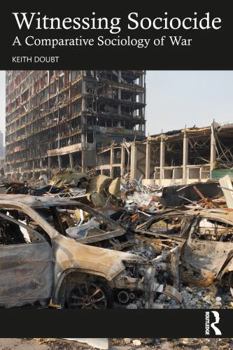Witnessing Sociocide: A Comparative Sociology of War
This book is a sociological study of recent international conflicts, from Bosnia and Iraq to Ukraine and Gaza. Its approach is theoretical, applying the framework of sociocide to assess the social consequences of the conflicts in Ukraine and Gaza, through comparisons with previous conflicts that meet these criteria.
Sociocide means the murdering of the social encompassing matters pertaining to human solidarity: family, social institutions, ethnic, and national identity. This study develops and applies the concept to describe the social and human consequences of the war in Gaza, making comparisons to Chechnya, Iraq, Bosnia, and Ukraine. The conflict in Gaza creates an anomic state of nature where force and fraud are the cardinal virtues. This war demolishes houses as well as the prestige of the home. It kills civilians, that is, children, mothers, and entire families. It destroys communities, their invaluable history and collective memory. It eradicates social systems. The war murders a society. The goal of the comparative study is to frame objectively the moral anomie surrounding the violence of war in Gaza and its impact on world order. It also uses the term sociocide to consider the political war in the United States and the social entrapment of the spirit of capitalism as formulated by Max Weber.
This study asks, is there something within society that is resistant to its own demise? Whenever human beings gather, is there an imperishable part of their solidarity? This study takes up these questions concertedly, drawing upon the truisms of important figures in the field of social thought.
This book will therefore be of interest to students and scholars of sociology, conflict studies, genocide studies, and any general reader interested in understanding the extent and impact of contemporary conflicts.





